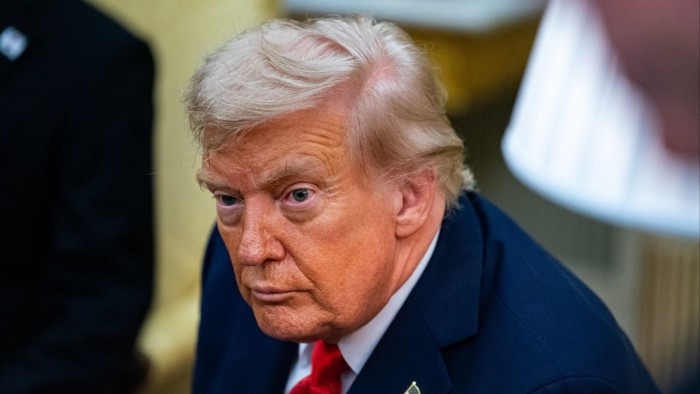Unlock the White House Watch newsletter for free
Your guide to what Trump’s second term means for Washington, business and the world
President Donald Trump has threatened tariffs and export controls on countries whose taxes, rules or laws on tech companies “discriminate” against the US.
In a post on his Truth Social platform late on Monday, Trump railed against “Digital Taxes, Legislation, Rules, or Regulations” and warned he could impose more levies and institute tighter controls on exports of US technologies.
“As the President of the United States, I will stand up to Countries that attack our incredible American Tech Companies. Digital Taxes, Digital Services Legislation, and Digital Markets Regulations are all designed to harm, or discriminate against, American Technology,” Trump wrote.
“They also, outrageously, give a complete pass to China’s largest Tech Companies. This must end, and end NOW!”
The broadside risks reigniting trade tensions with the UK and the EU, which both struck recent trade agreements with Washington.
US officials have repeatedly criticised the UK’s digital services tax, although it was kept in place following its deal with the Trump administration.
During recent trade talks, the US has also attacked the EU’s landmark Digital Services Act, which forces big tech companies to police their platforms more aggressively.
Several EU member states, including France, Italy and Spain, also have digital services taxes in place.
During Trump’s first term, both Democratic and Republican lawmakers criticised foreign governments’ efforts to levy additional taxes on tech companies as discriminatory.
In February, Trump ordered the US trade representative to reopen investigations that could lead to tariffs on countries that have imposed a digital services tax.
In June, Canada scrapped its digital services tax, which Trump had described as a “direct and blatant” attack, in an effort to smooth trade negotiations with its neighbour.
UK officials also weighed changes to its tech tax during talks with the US, but were ultimately able to reach a trade deal without amending the levy.
The 2 per cent tax, which hits tech giants including Alphabet, Meta and Amazon, is applied to companies with global revenues of more than £500mn, and is applied on revenues greater than £25mn derived from the UK.




